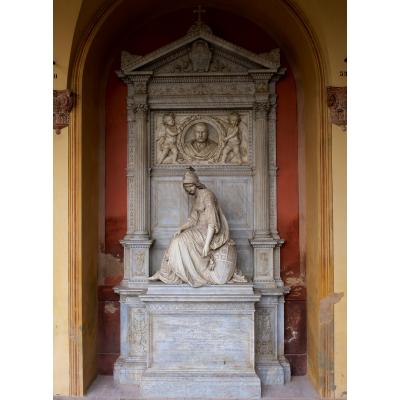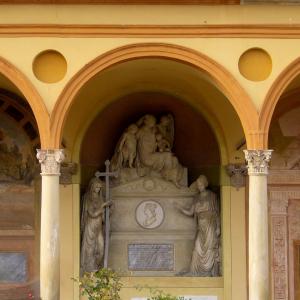Scheda
Pietro Magenta, elected Prefect of Bologna on November 17, 1861, had previously accomplished a long and brilliant career, begun in 1838 as Intendent of Oneglia, then in Ivrea and, finally, in Genoa. In 1843, he undertook the office of Intendence Counsellor in Novara, then Genoa and finally, in 1847, the position of Intendent of La Spezia, during the years of turmoil of the revolutionary triumvirate and the Tuscan dictatorship. In 1849, he was elected Intendent at Casale, he managed to put down at once the riots that had risen a long time before within the province. Considering the readiness and efficacy of his reforms, he was conferred the title of Knight of SS. Maurizio and Lazzaro. In 1852, he undertook the office of General Intendent of Cagliari and, in 1856, of Chambery (Savoia). With this office he succeeded in brilliantly using the qualities he was endowed of, by bringing innovations and improvements to the province, such as the subordinate classes’ education and street building, gaining in this way the friendship of Cavour, who, very soon, in the name of His Majesty, conferred him the successive title of Commander of SS. Maurizio and Lazzaro.
In 1860, he joined, as Vice Governor of Genoa, the Governor of the city, count Porro. When he resigned the office, Magenta led the city, just in the period of the preparation of the Expedition of the Thousand. With his great diplomatic qualities, and supported by a deep liberal attitude, as Vice Governor, he played, in the shadows, a determinant role. He succeeded in interpreting and favouring, at the same time, both Cavour’s and Garibaldi’s political vision, therefore helping the success of the enterprise. According to the bibliographic references, Magenta, after the success of the expedition, adding details to facts and events of that period, said:”Solo il conte di Cavour ed io potremmo far l’istoria della partecipazione del Governo a quella impresa!” (“Just the count of Cavour and me could make history out of the Government’s participation in that undertaking!”).
Pietro Magenta’s stay in Genoa didn’t last long. On November 17, 1861, Minister Ricasoli appointed him Prefect of Bologna. Notwithstanding the Deputation and the Genoese provincial Council’s requests, Magenta had to be moved to Bologna so as to bring public safety in the city through an immediate and strong intervention. Almost at once, the new Prefect rebuilt the City Council, organized the National Guard and gathered the names of those who, in the previous twenty years, had been put on trial, organizing the surveillance for each of them. After a short time, tranquillity and safety had been re-established and the Bolognesi began appreciating his shrewdness, experience and simplicity and bestowed great demonstrations of their gratitude upon him. In July 1862, the Prefect decided to undertake a trip to Germany, Prussia, Belgium, France and, then, England to widen his knowledge of the administration of these nations. At the dawn of July 16, not far fom Andermatt, near S. Gottardo pass, the diligence he was travelling on fell into a precipice and, two days later, Magenta, for the ingent injuries, died. The disconcert for his death was enormous in Genoa, but mainly in Bologna, where the citizens, who were already raising a subscription to offer the Prefect a gift as thanksgiving, decided, firstly, to lay a commemorative stone to his memory in the first courtyard of the Town Hall (Accursio palace) and, then, to assign the sum already collected, £ 20.000, to the construction of a monument dedicated to him in the town cemetery, asking his relatives to carry and bury the Prefect’s remains in Bologna.






